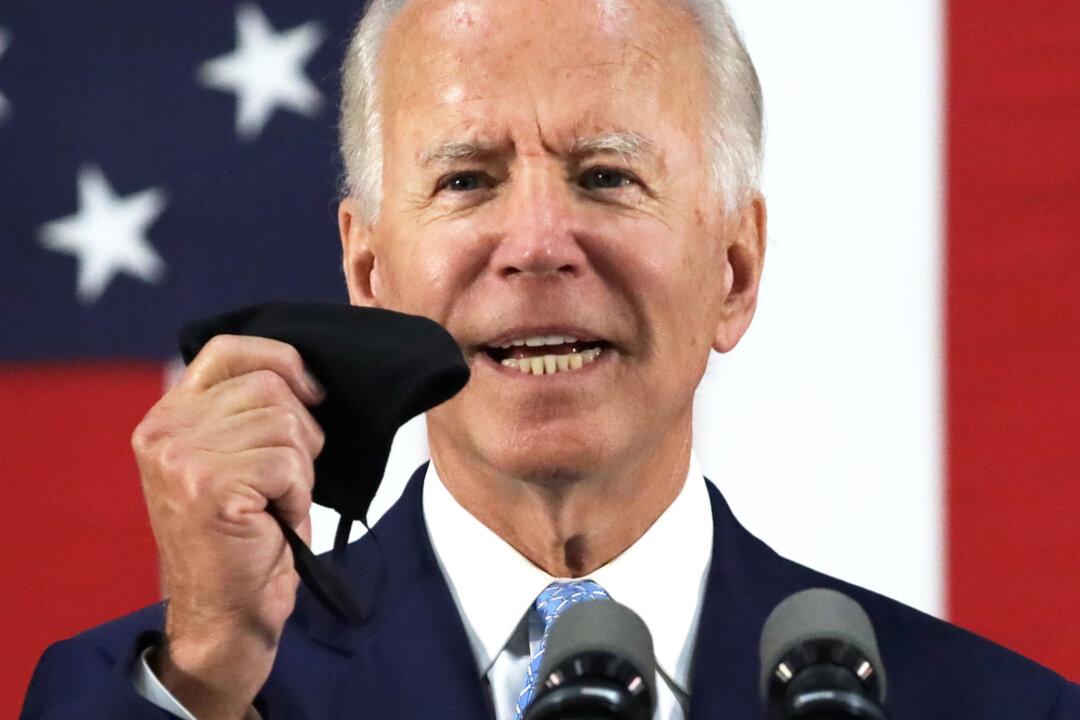Former Vice President Joe Biden will prioritize “environmental justice and equitable economic opportunity” as part of his Clean Energy Plan to combat climate change, according to a statement released Tuesday.
The Democratic Party’s presidential candidate says his $2 trillion Biden Plan will move to ensure a carbon-free power sector by 2035, which will be accompanied by massive investments in electricity grids and storage to support the construction of 500,000 electric vehicle charging stations. The upgrading of 4 million buildings and the weatherization of 2 million homes will create 1 million new jobs, according to the plan.
Biden said he intends to use an “All-of-Government approach” to tackle environmental issues, making data-driven decisions and employing resources in a manner consistent with his prioritization of “environmental and climate justice.” He also promises to plan for the next public health emergency.
The former vice president says that the CCP (Chinese Communist Party) virus crisis should serve as a reminder that past policy decisions in the realm of energy and the environment have “failed” black, Latino, and Native American communities, which he says are disproportionately affected by “stressors” such as systemic shocks and pandemics.
Biden insists that in association with his “Build Back Better“ plan, his climate plan will help ensure that the U.S. economy will be ”less vulnerable to shocks and better able to bounce back from future threats.”
The Biden Plan
As part of Biden’s climate plan, a Civilian Climate Corps—described as “a new, diverse generation of patriotic Americans”—would conserve public lands, serve the community, and address climate change by thinning forests, restoring wetlands, planting trees in urban neighborhoods, and removing invasive species.
As part of his plan to rebuild America’s infrastructure, Biden proposes to spark “the second great railway revolution,” ensuring that the United States would boast the “cleanest, safest, and fastest” rail system in the world. Municipalities with more than 100,000 inhabitants would also enjoy “quality” public transportation by 2030, Biden says.





